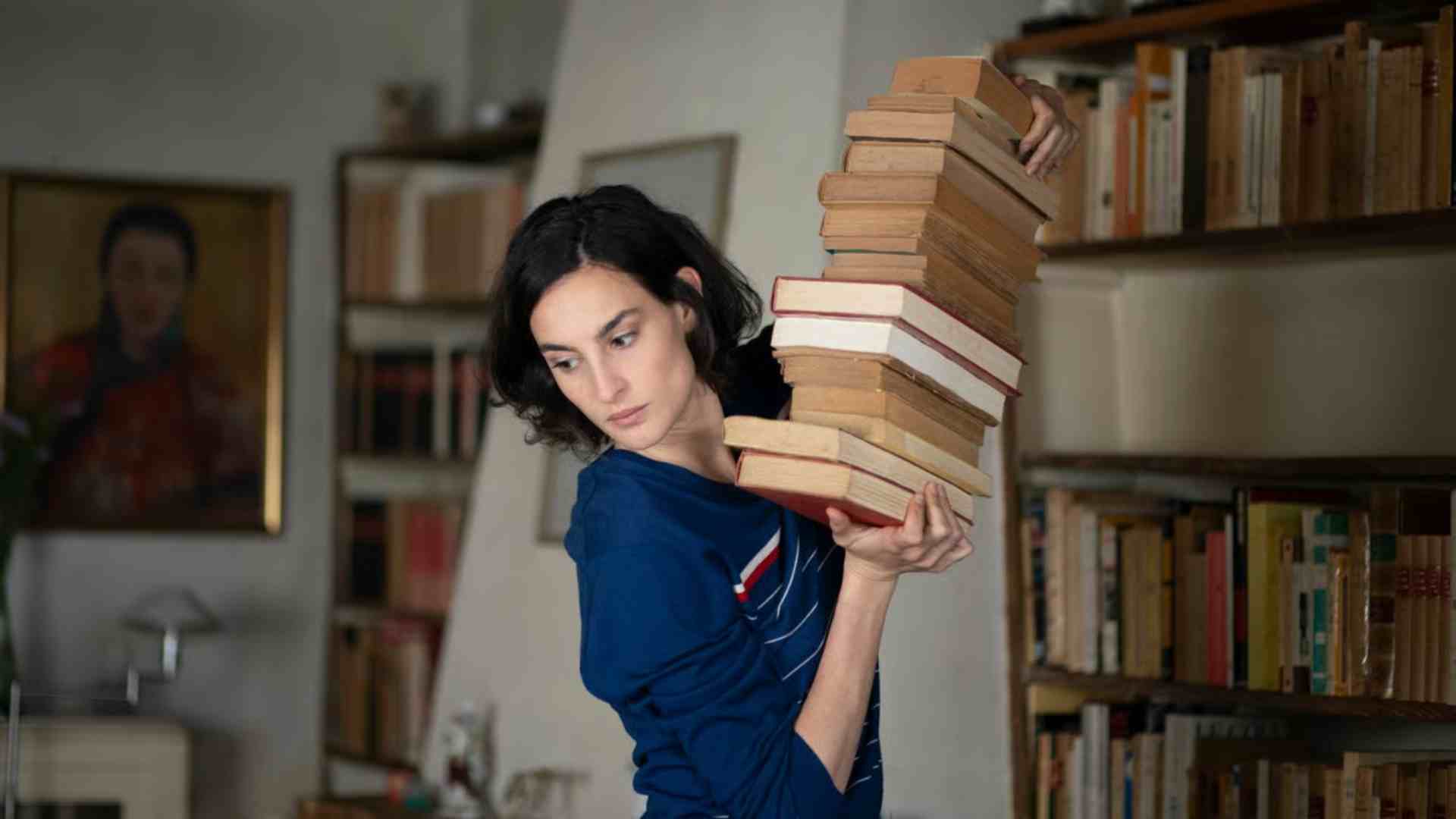For those who think Ari Aster’s Eddington perfectly distills the reality of early lockdown—with all of its anxiety, exasperation, and social isolation—Olivier Assayas’ Suspended Time ups the ante. While Aster’s cynical reflection of this particularly paranoid era is intriguing (if highly flawed), Assayas surveys this period with unvarnished accuracy, using his own experience for direct fodder. In turn, Suspended Time is a much more truthful depiction of this strange moment, rife with reflections that are at times droll, despondent, or, perhaps for some, downright dull—yet always raw.
Assayas’ avatar is Paul Berger (Vincent Macaigne), who retreats to his childhood home in the verdant French countryside with his girlfriend Morgane (Nine d’Urso), a documentary filmmaker, during the early days of the pandemic. Also hunkering down is Paul’s music journalist brother Etienne (Micha Lescot) and his new paramour Carole (Nora Hamzawi), whose presence is largely innocuous compared to Etienne’s prickly personality. The sunny spring days are spent in general monotony: tennis is played on the estate’s court, walks are taken through the unmanicured landscape, meals are eaten al fresco. Amid this collective consistency, everyone begins to develop increasingly neurotic coping mechanisms, particularly Paul and Etienne. The former becomes convinced that all items delivered to the house must be left out for four hours to ensure any traces of the virus have dissipated; Etienne, on the other hand, becomes addicted to making and eating crepes at all hours of the day.
As these tics consume most waking moments, Paul and Etienne quarrel constantly. Though Paul is more insistent about everyone abiding by his neuroses, Etienne appears to crave conflict, as if these petty squabbles exist to inject much-needed excitement to his drab days. These moments are never truly tense, instead providing the comedic backbone of an otherwise mundane plot. This dynamic is also wholly relatable—who among us didn’t pick a fight out of overwhelming anxiety (or pure boredom) while shut in with friends and family? Whether it’s the use of an expensive Swedish saucepan, the ethics of ordering from Amazon, or differing opinions on proper pandemic protocol, Paul and Etienne regularly press on the same sore spots, as if allowing this metaphorical bruise to heal would mean they have one less thing to do with their infinite free time.
Of course, the fraternal nature of their relationship means that Paul and Etienne have a lifelong rapport, but Morgane and Carole’s roles in the film are cursory at best and outright neglected at worst. The women share a conversation early in the film—predictably, about their respective relationships with these brothers—but their presence rarely heightens any tangible stakes. They both state that they’ve never properly cohabitated with their current partners, yet it appears that there is virtually no annoyance or frustration festering between the couples themselves, an interesting detail that, perhaps, is true of Assayas’ own experience during lockdown. Then again, the sprawling grounds that the quartet occupy is much more charming and accommodating than most people’s; if we all spent the first three months of quarantine amid impressive personal libraries and bucolic scenery, it might’ve been all the easier not to get hung up on our partners’ idiosyncrasies.
Being in the house itself causes Paul to instinctively recall moments from his upbringing as well as facts about his family’s history. Though both of his parents are now dead, their specters cling to the fabric of this liminal yet deeply-felt reality. Via voiceover, Paul recounts the significance of items in the home, the surrounding area, and words his parents exchanged with him years prior. These musings manifest as periodic vignettes in Suspended Time, interrupting the sparse narrative in a way that is clearly true to Assayas’ experience. This creates a compelling hybridization that feels in line with the filmmaker’s fascination with toying with the boundary between fact and fiction, particularly in regards to actors playing with their own personalities and personhood.
In another self-reflexive move, the film’s climax finds Paul excitedly driving to pick up his daughter Britt (Magdalena Lafont), who has been spending this precarious period with her mother and his ex-wife. Having only been able to communicate via sporadic FaceTime calls for weeks, this visit also signifies a potential restoration of normalcy in the near future. The vibe is generally friendly between Paul and Flavia (Maud Wyler), who spent 10 years together before breaking up. It doesn’t take much guesswork to discern that Flavia is a stand-in for filmmaker Mia Hansen-Løve, who was in a relationship with Assayas for 15 years and with whom he has a daughter. The portrayal is perfectly amicable here, Flavia poking fun at Paul for his all-consuming fear of COVID while elegantly clutching a cigarette.
Some may dismiss Suspended Time as an indulgent exercise in creating a time capsule of a generation-defining yet ephemeral moment, but Assayas filtering the pandemic through his own lived experience is refreshing compared to something more removed, like Eddington‘s overwrought satirical exercise. Throughout the film, Paul professes his admiration of painter David Hockney, whose work across mediums includes clever portraits of his loved ones that sought to capture their intangible likenesses. Though Assayas is best known for his incisive cultural commentary, the subdued regimes and musings in Suspended Time are just as enthralling in their own quiet way.
Director: Olivier Assayas
Writer: Olivier Assayas
Starring: Vincent Macaigne, Micha Lescot, Nora Hamzawi, Nine d’Urso
Release Date: August 15, 2025

 Keep scrolling for more great stories.
Keep scrolling for more great stories.
